Today’s world is smaller than ever, and as technology continues to advance it will only get smaller. Raising students for success means teaching them how to be global citizens, emphasizing cultural literacy and geoliteracy, and exposing them to people whose lives differ from theirs.
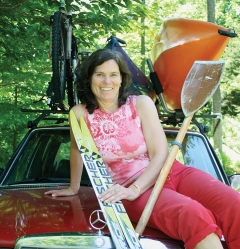
For this, there’s no better author than Jan Reynolds. Reynolds is a writer, photographer, and adventurer who has written over fourteen nonfiction books for children about her travels. Her work has appeared in numerous publications including National Geographic, The New York Times, and Outside Magazine. Reynolds is an avid skier, mountain climber, and adventurer who holds the record for women’s high altitude skiing, was part of the first expedition to circumnavigate Mount Everest, and performed a solo crossing of the Himalayas.
Throughout April, we’ll be exploring how Jan’s books can be used in the classroom to teach about the environment, geoliteracy, global citizenship, and nonfiction. Today, we wanted to share Jan’s books and some of our favorite resources available to help teach them:
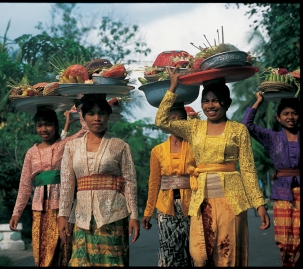
image from Cycle of Rice, Cycle of Life
Jan’s Books:
Vanishing Cultures: Sahara (North Africa)
Vanishing Cultures: Mongolia (Mongolia)
Vanishing Cultures: Himalaya (Nepal/Tibet)
Vanishing Cultures: Frozen Land (Northwest Territories, Canada)
Vanishing Cultures: Far North (Arctic Circle, Northern Europe)
Vanishing Cultures: Amazon Basin (Amazon Basin, South America)
Vanishing Cultures: Down Under (Australia)
Celebrate! Connections Among Cultures
Cycle of Rice, Cycle of Life: A Story of Sustainable Farming (Bali)
Only the Mountains Do Not Move: A Maasai Story of Culture and Conservation (Kenya and Tanzania)
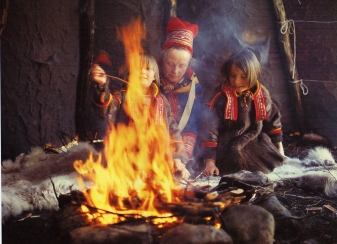
image from Vanishing Cultures: Far North
Lesson Plans and Classroom Guides:
Classroom Guide for Vanishing Cultures series (including classroom guides for individual books)
Classroom Guide for Only the Mountains Do Not Move
Classroom Guide for Cycle of Rice, Cycle of Life
Classroom Guide for Celebrate! Connections Among Cultures
Interviews with Jan Reynolds:
Jan Reynolds on Cultural Anthropology and Photography (Only the Mountains Do Not Move)
Talking about Sustainability with Jan Reynolds (Cycle of Rice, Cycle of Life)
Interview with Jan Reynolds on Celebrate! Connections Among Cultures
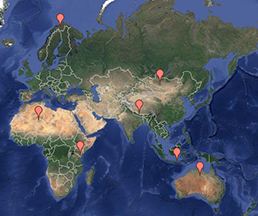
map of some of the places explored in Jan Reynolds’ Vanishing Cultures series
Video:
Jan! From Here to There
Maasai Life with Anthropologist Terry Mcabe
Life in the Wild: Visit a Maasai Tribe in Kenya
Explore Rice Farming on the Island of Bali: Parts I, II, and III
Author Visits:
Jan Reynolds visits schools around the world to share her books and experiences, and also does virtual Skype visits. For more information on her school visits or virtual visits, visit her website or contact us at [email protected].
Visit our Author Study Pinterest Page for more great activities and resources related to Jan’s books, and stay tuned throughout April as we delve deeper into the books of Jan Reynolds and explore how they can be used to teach global citizenship, environmental stewardship, geoliteracy, and more.
Filed under: Curriculum Corner Tagged: CCSS, diversity in the classroom, environmentalism, geoliteracy, global citizenship, informational text, Jan Reynolds, nonfiction, teaching resources



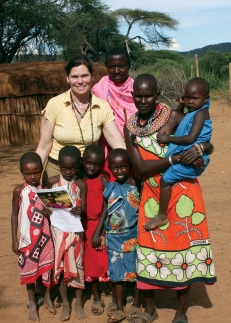
Hooray for you! I think Poetry can promote tolerance.
Poetry is an art about the inner self. It helps people identify their feelings. If all the people involved in the Columbine shootings would have been aware of their feelings, then perhaps that "incident" could have been prevented.
A guidance counselor could have been called in early. If the shooters were able to recognize the signs of depression, they may have been put on medication. They may have sought out some talk therapy from a qualified therapist, etc. The whole scenario could have turned out different.
Laura Evans
Good for you for including that striking poem. I hope your supplication brings the desired results!
Congratulations for passing the Technical Review!
Good advice buried in your story of continued re-reading and revision: a piece of writing is never finished! (Glad you removed the NOT and, although it's risky, glad you held firm for nigger. It's a strong point made stronger by strongly offensive (but historically accurate) language.)
That is a poem with a bite! I hope it helps your charter school get going with passion & grace. You sound like you're on the right track.